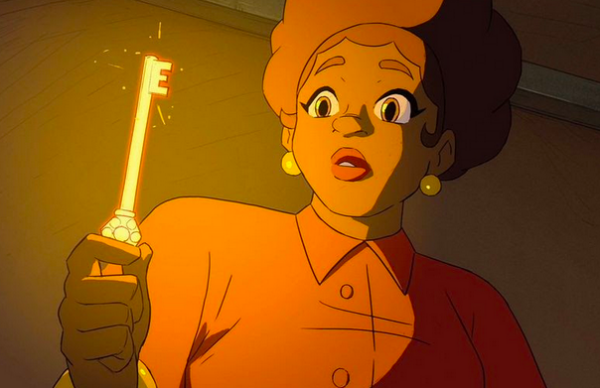Can people be enlightened about housing inequality through a video game? That’s the purpose of Dot’s Home — a video game whose purpose is just that.
The narrative-driven game centers around Dorothea “Dot” Hawkins, a 20-year-old Black woman who goes back in time to help different generations of her family make decisions about housing. Dot time travels via a magic key to the ‘50s, ‘90s, 2010s, and then 2021, Input Magazine reported.

Dot is living in her grandma’s rundown house, located in a disinvested Black neighborhood in Detroit. Dot travels back in time to help; for example, her grandparents decide if they should invest in a fixer-upper as their first home. In another scene, Dot must help her parents decide if they should move away from their community to the suburbs after their public housing home is set for demolition, Bloomberg reported.
Dot travels through different decades, each highlighting “a defining moment in history for Black homeownership: the Great Migration of the 20th century, urban renewal efforts in the 1990s, and finally, the 2010 foreclosure crisis that helped spur gentrification,” Bloomberg reports, At each stop Dot must transverse racist housing policies and predatory lending practices. Ultimately, the game proves the odds are stacked up against Dot from creating generational wealth, no matter what decade she is in and the decisions she makes.
The American dream myth is that wealth and prosperity is out there for everyone’s taking, and that the house with the white picket fence is accessible to all. But players in Dot’s Game are shown the obstacles faced by Black homebuyers in the U.S.
“We wanted players to play the game and not necessarily empathize with Dot’s family but just to bear witness to, and accompany them through, these very intimate but consequential moments,” Christina Rosales, housing and land director at the community organizing nonprofit PowerSwitch Action and a co-producer of the game, told Bloomberg.
“As a player, you might feel like you have the choice to change the course of the future for this family, but ultimately, you don’t. It’s very much a rigged game. You get what you get,” Rosales told Kotaku.
The focus of Dot’s Home is to illustrate how Blacks, as well as other minorities, have to deal with housing issues, food insecurity and environmental risks, among other issues.
The concept for the game was developed through the Rise-Home Stories Project, an organization composed of Black and minority organizers that includes game designers, writers, activists and others. The group’s mission is to “change our [the] relationship to land, home, and race, by transforming the stories we tell about them,” according to its website.
Dot’s Home, which was released in late-October, and is free to play on Steam, Itch.io, Google Play and Apple’s App Store.




